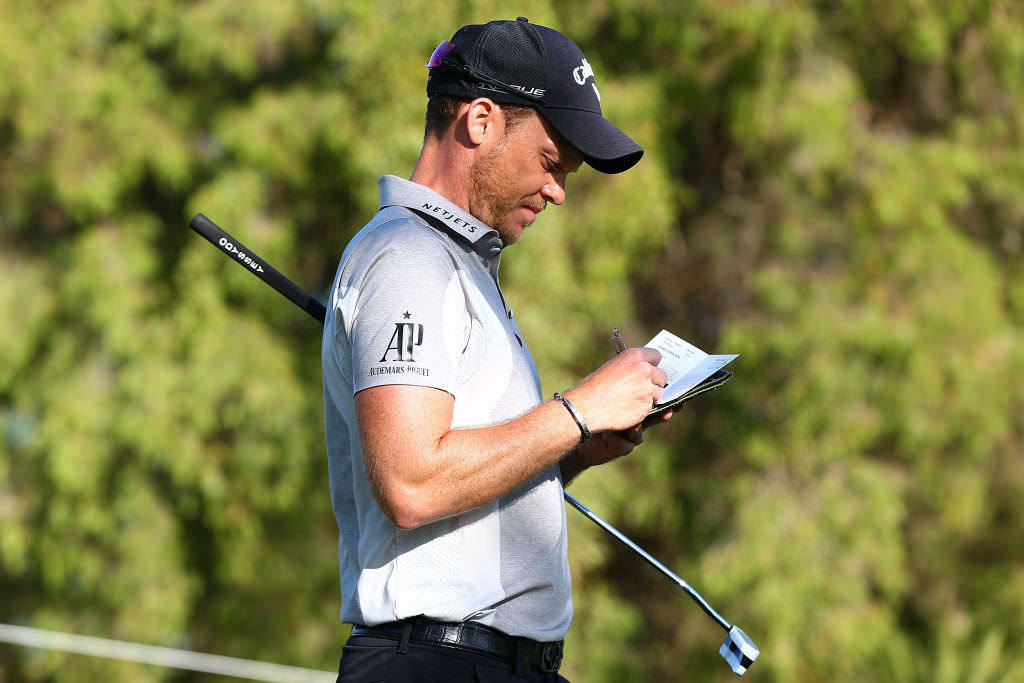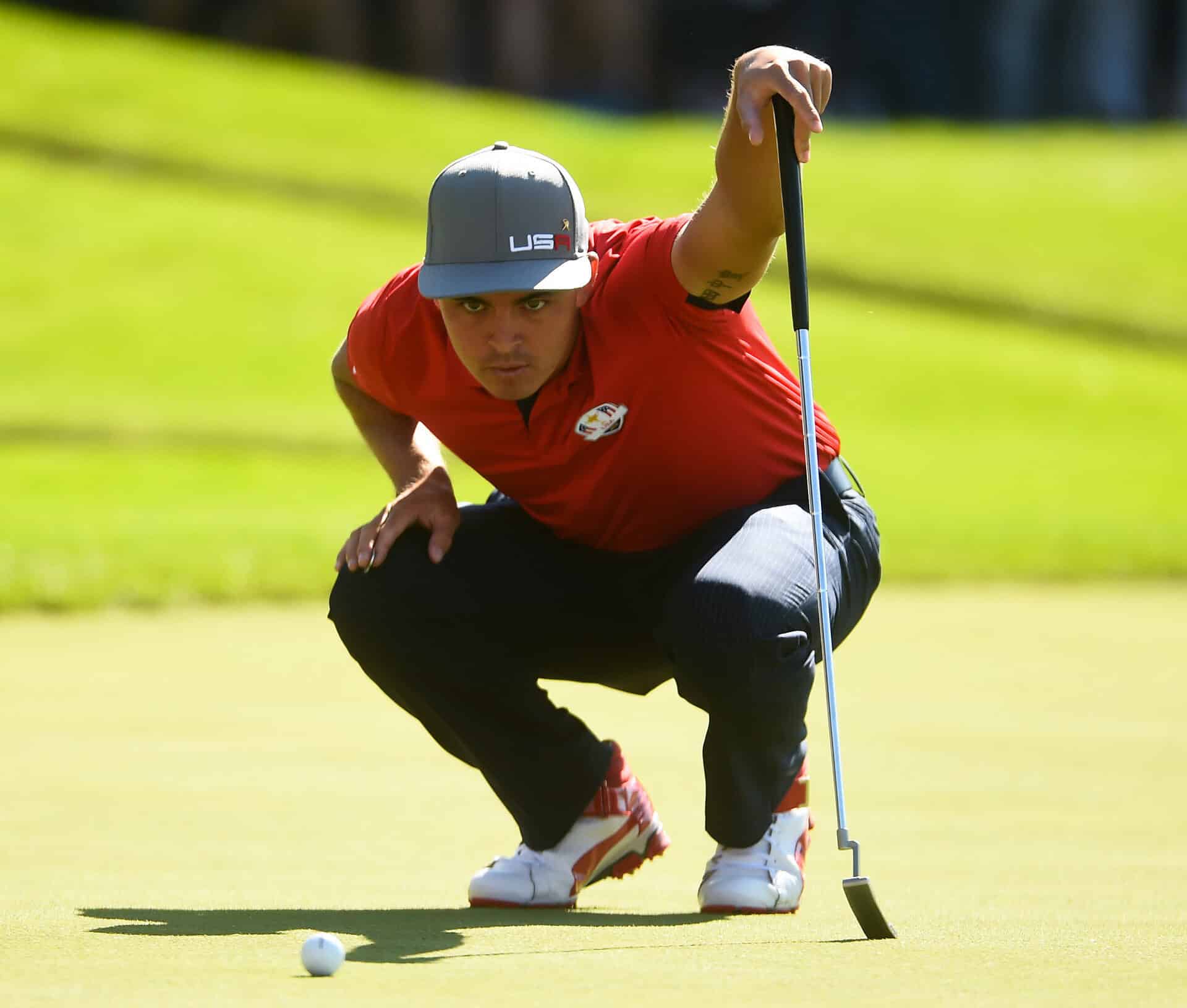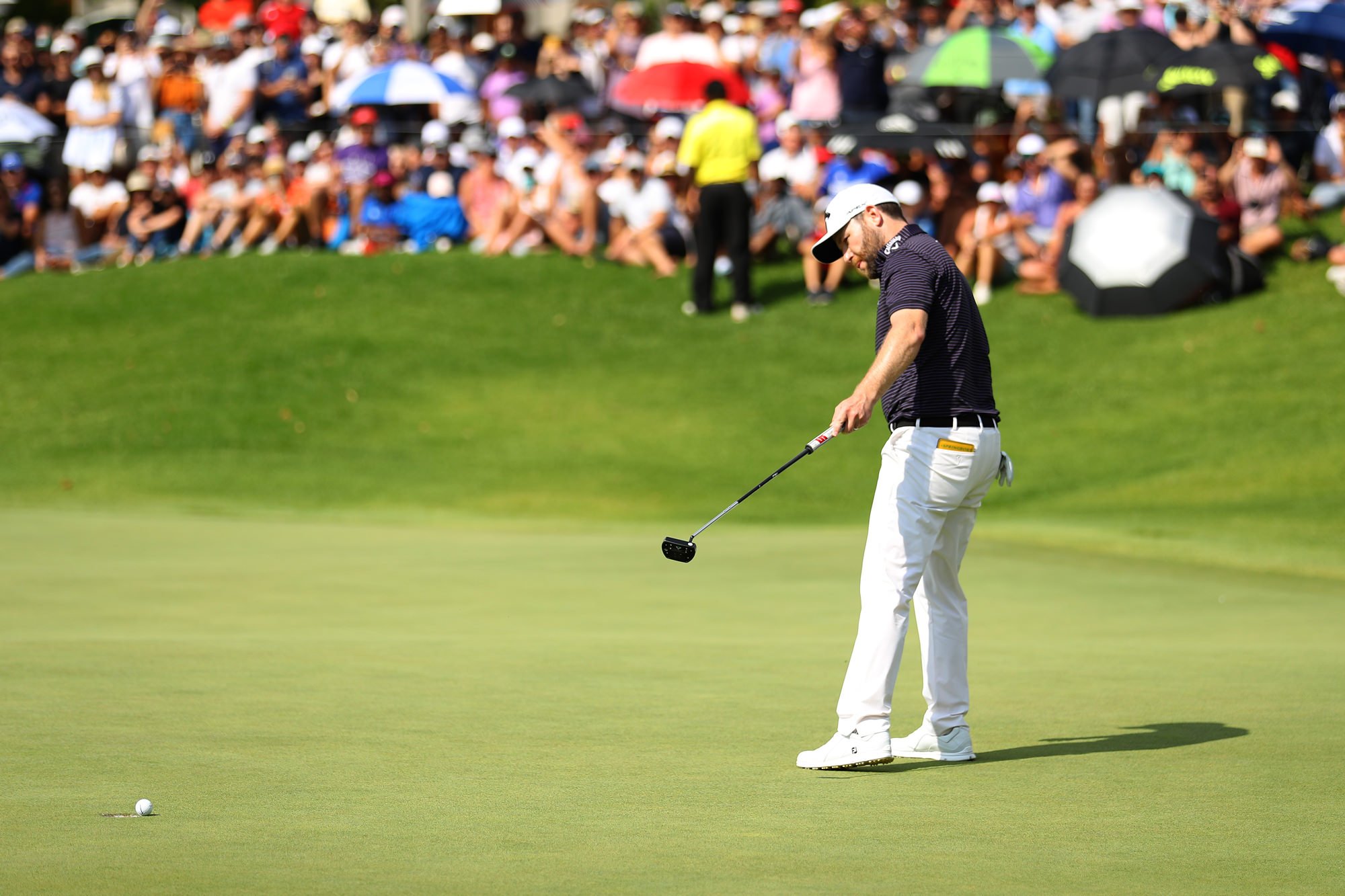
Friend or foe? How to play your best when marking a scorecard
If you hang around the clubhouse long enough, you’ll start to hear a lot of the same complaints from players about the mental setbacks they face. One issue that is particularly common is: “I always play better when I’m not marking a scorecard.”
A lot of the clients that I work with initially see me as they also struggle with this. They recognise that play consistently well until they get a scorecard, then, with one eye on a handicap cut, their game deteriorates.
So how can a scorecard have such an effect on the way that you play? I usually find it comes down to three reasons.
Firstly, when golfers play with a scorecard, they make an expectation of how well they think they should be playing. Therefore, if their game doesn’t match up to their expectations, they can start to force shots that they wouldn’t normally do, affecting the quality of their game. Secondly, players can become more focused on the outcome (scores) as opposed to their process (what they need to do to play their best). Finally, it can lead to golfers always thinking about what is coming next and it stops them from playing in the moment. Combined, all of these factors lead to people playing worse.
Most golfers are familiar with the idea of using their scorecard as a ‘mental scorecard’ during their round. However, there are a number of other techniques that can better help you overcome these setbacks. Here are five easy steps you can follow when you next have a scorecard in your hand.
1. View scoring as a process not an evaluation
Lots of golfers see being scored purely as an evaluation. While it is, by its very nature, an evaluation of your performance, I often ask my clients to alter their perceptions in order to improve their game.
If golfers can start to see scorecards as a process, with each score tracking their progress, they often seem much less threatening and potentially even encouraging.
After all, every golfer wants to get better and the only way to track this is from your handicap which changes based on your scores.
2. Use it to your advantage
It is often forgotten that scorecards can be used by golfers in other ways. For example, they can tell you yardages, stroke index and what par the hole is.
From this information you can formulate a plan for each hole and reflect on similar distance holes. In this case, golfers should plan using the information available to them, review their decision based on previous similar holes, and then as soon as the card goes away, execute their shot without having to overthink strategy and technique.

3. An opportunity to succeed
For some golfers, when they get their scorecard they start thinking about what they have to lose. For example, dropped shots, losing face, and poorer scores. Thinking like this causes increased stress and in turn, poor performances. Instead you should focus on the opportunities that playing gives you and what you can gain from that round such as taking risks, enjoying your time on the course, and playing great shots.
Then, think about how to best capitalise on these opportunities. Interestingly, people always say the best golfers are lucky but for me, the only difference between being lucky and unlucky is how people respond to opportunities.
4. Use the scorecard to ‘close the book’
Much like Tiger’s 10-yard rule, the scorecard can be used to end a thought process and move on. As you go from one hole to the next, it’s easy to think about what you should have done all the way until you are on the next tee getting ready to take your next shot.
Instead, when you write you down your scores, as you put your card back in your pocket, make this as a ‘closed book’ moment. When the card goes away, use it as a trigger to say something positive and helpful to yourself before moving on to the next tee. This gets you focused on playing the next hole and stops you from dwelling on what happened on the last one.
5. Use the scorecard to reflect
Many times after a round, scorecards get left in a bag never to see daylight again. However, they can be a great tool to learn. Comparing scorecards over a number of competitions will quickly show if there is a pattern in bad play.
Also, if there are scores that you know should have been better, take the time to ask yourself the most important question in performance psychology: ‘What would I do differently next time?’ Without reflecting, you are not learning, and without learning, you are not improving.
Final thought
Learning to use your scorecard in a different way like this can seriously improve your performance. So next time, use these five easy tips to master competition golf and get the most out of your time on the course.
Hannah Holden

Hannah Holden is the Equipment and Instruction Editor here at National Club Golfer. If you’re looking to improve your game, by changing your golf swing or upgrading your golf equipment she’ll have the answers.
As well as writing lots of features and reviews you can find her on our YouTube channel giving you insights on the latest rules, clubs and tips to improve your golf game.
Hannah is a member at Alwoodley golf club. You will either find her here or driving up and down the country playing in a variety of elite amateur events.










